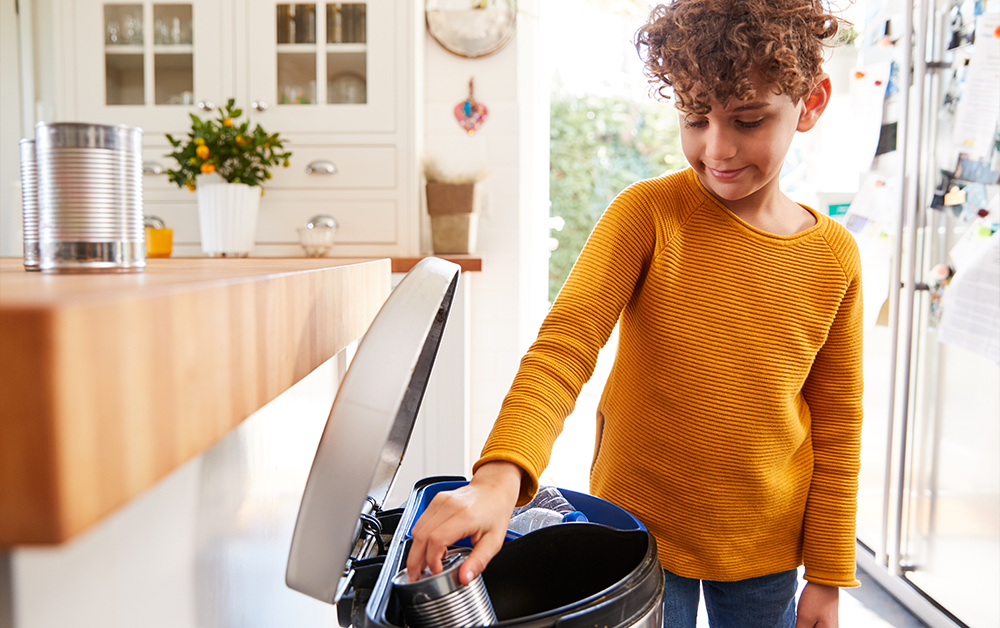
Sustainability at Home: Eco-Friendly Practices for Residents of Single-family Homes
Regardless of whether you rent or own your home, sustainability is something that can positively impact each of us. By incorporating eco-friendly practices into your daily routine, you’ll not only be contributing to a healthier, brighter future for the planet, but you’ll also likely see some personal financial benefit. Every small effort counts and can inspire others around you to make positive changes as well.
There are several simple yet impactful ways you can decrease your use of resources. In this blog post, we’ll explore some eco-friendly practices that will benefit the environment, contribute to a greener future for all, and hopefully even save you some money.
1. Conserve Energy and Water
Small changes in your daily routines can lead to significant energy and water savings. Here are some you can try:
- Turn off lights and unplug devices when not in use, including phone and mobile device charges which continue to draw power even when not in use.
- Use energy-efficient bulbs and consider investing in power strips that can easily cut off electricity to multiple devices at once.
- Be mindful of water usage by fixing leaks promptly and opting for shorter showers, or even turning off the water while you soap, then back on to rinse off.
- Set your thermostat at a comfortable, energy-efficient temperature. Many Progress Residential® rental homes come equipped with Smart Home technology, so you can conveniently and remotely manage your thermostat schedule.
2. Reduce, Reuse, Recycle
Implementing the “three R’s” is a tried-and-true approach to sustainability.
Reduce
Minimize waste by making conscious purchases and opting for durable, long-lasting products you can use repeatedly.
- Borrow or rent items that you only plan on using once.
- Reduce food waste by only purchasing what you need and/or donate any unused food to your local food bank.
- Keep disposable plastic bags out of the landfill by opting for reusable cloth or canvas alternatives.
Reuse
Find new purposes for items you would otherwise throw away. By extending the lifespan of everyday items, you’re reducing the demand for new resources and diminishing the environmental impact of waste.
Here are a few examples using things you probably already have at home:
- Repurpose glass jars as storage containers
- Use old newspapers for cleaning windows
- Transform worn-out clothing into creative craft projects
Recycle
Recycling contributes to a circular economy and reduces the burden on landfills.
- Familiarize yourself with your local recycling guidelines and actively participate in your community’s recycling programs.
- Separate recyclable materials from non-recyclables to ensure they are processed effectively and transformed into new products.
3. Green Thumb Living
Adding a touch of nature to your space not only enhances its aesthetic but also promotes a healthier environment. Consider indoor plants that improve air quality, such as snake plants or peace lilies. If you have a balcony, patio, or other outdoor space, explore container gardening for fresh herbs and vegetables. This hands-on approach brings a sense of accomplishment and connection to the Earth.
4. Choose Sustainable Products
When it comes to furnishing your rental home, choose sustainable and eco-friendly materials whenever possible. Look for furniture made from reclaimed wood or bamboo and opt for bedding made from organic materials. For kitchenware, consider using reusable items like cloth napkins, stainless steel straws, and glass food storage containers.
These choices support sustainability and lend a touch of natural beauty to your living environment. Another benefit is that sustainable products may help reduce your exposure to all kinds of industrial chemicals.
5. Mindful Consumption
Before making purchases, think about the lifecycle of the product. Items that are built to last will have a lower impact on the environment in the long run. When shopping, consider browsing at thrift stores or online platforms first. Giving a gently used item a second life reduces waste and supports a circular economy.
Making a Difference with Simple Changes
By adopting these eco-friendly practices, you’ll leave a lighter footprint on our planet while likely enjoying some financial savings. Start small and watch as your actions ripple into a meaningful impact.



